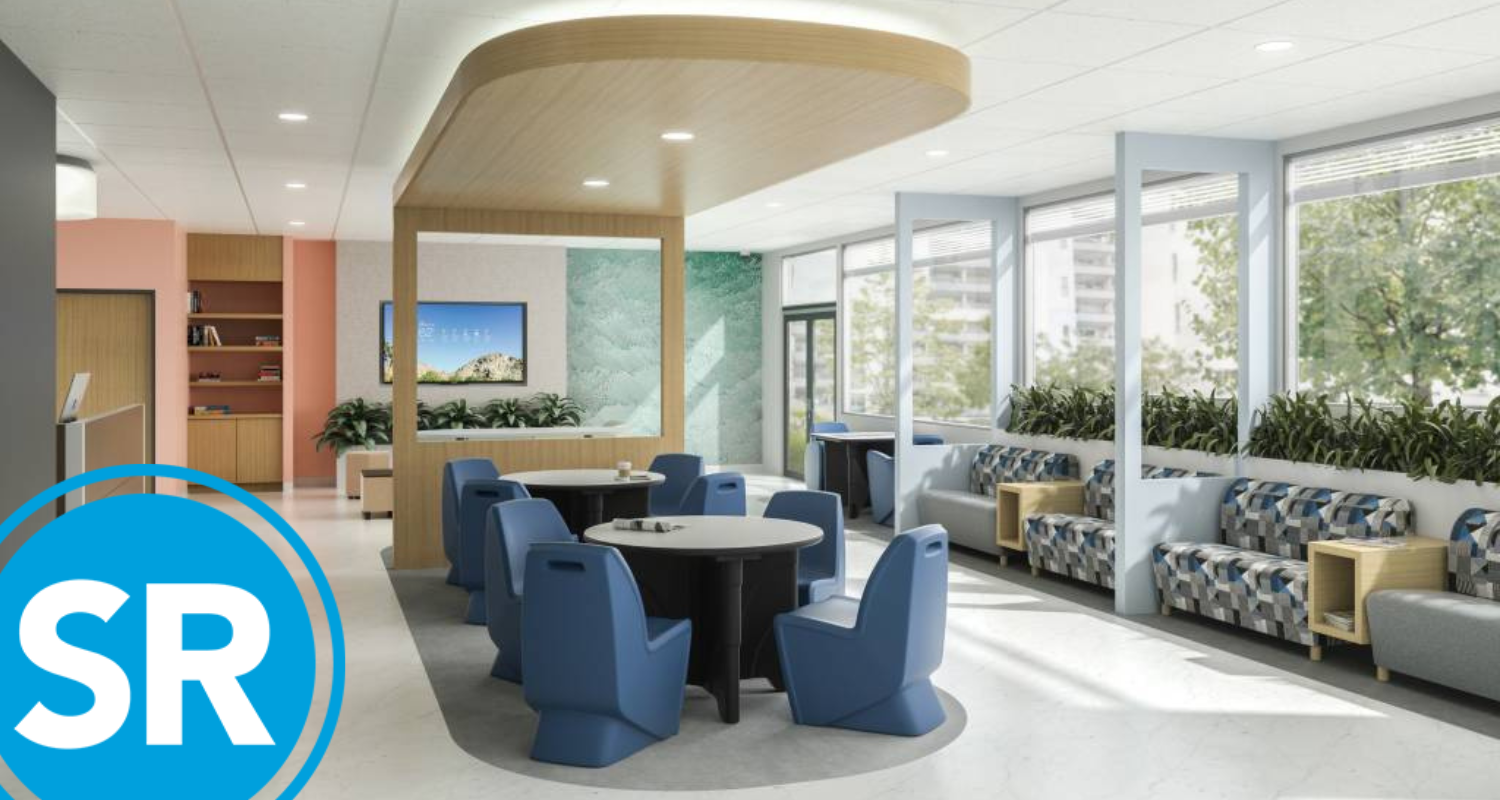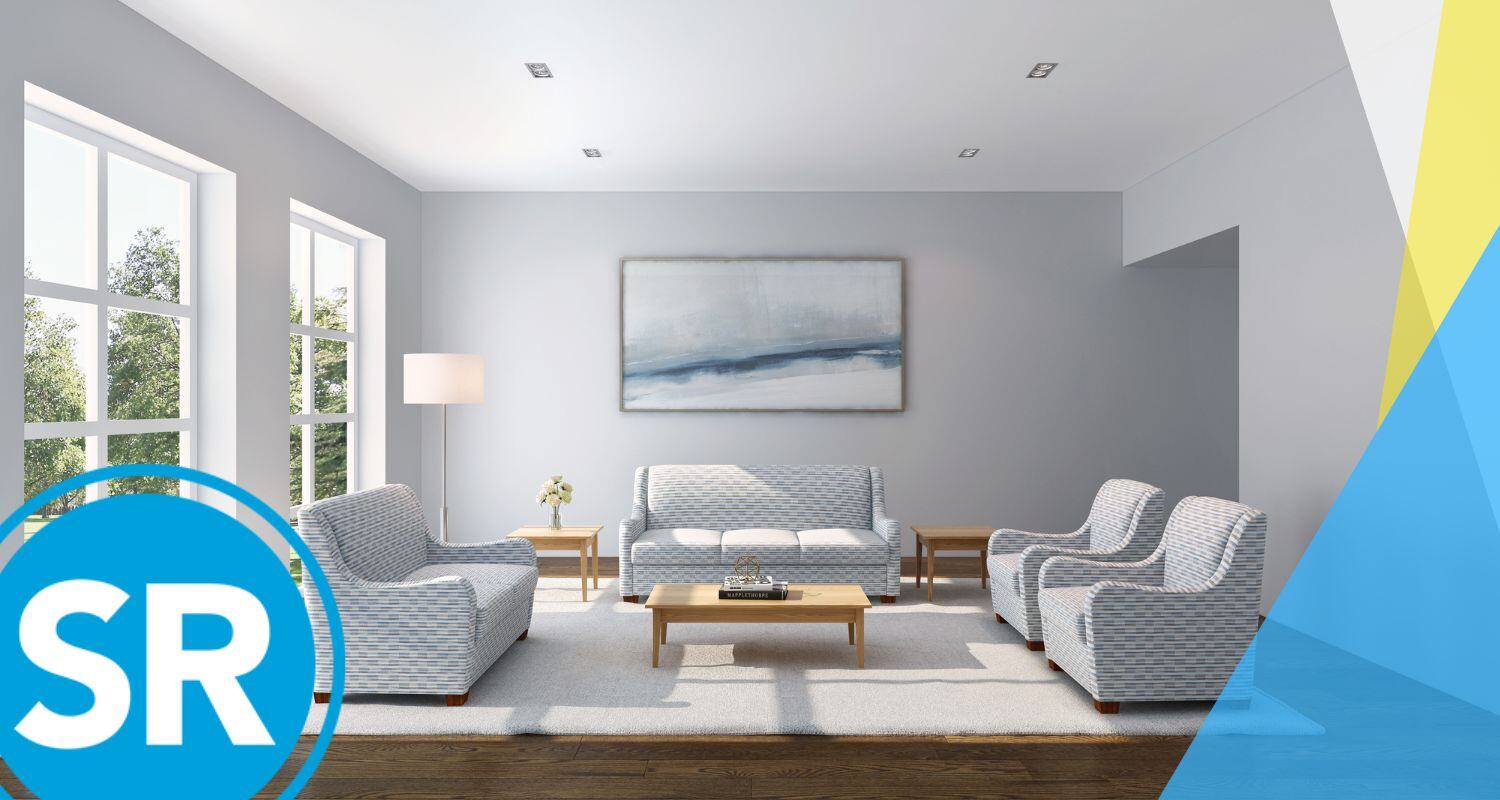Human-Centered Innovation: Unveiling 5 Trends from The Healthcare Design Conference
The healthcare industry is on the pulse of design transformation. With numerous organizations vying for attention, new hospitals are emerging and...
4 min read
Scott Rice May 31, 2024

On May 14, 2024, Scott Rice Office Works hosted a groundbreaking symposium titled “Humanizing Behavioral Health Through Design” at our Lenexa Work/Life Center. This transformative event served as a nexus for industry leaders, design visionaries and furniture innovators to converge and reimagine the potential of intentional design in the realm of behavioral health. The symposium illuminated the profound impact of physical environments on mental wellness and highlighted how design can help us feel better overall.
At the heart of the symposium was a dynamic furniture expo, showcasing industry giants like ModuForm, Steelcase Health, Stance, Pineapple, Cortech, OFS/Carolina and FomCore. These exhibitors unveiled cutting-edge designs to cultivate supportive and therapeutic environments within behavioral health settings. Each exhibit contributed to a collective vision of humanizing behavioral health spaces through thoughtful design.

Renowned experts led discussions, unraveling the intricate relationship between physical spaces and mental well-being, including environmental risks in behavioral health. One of the highlights was a panel focused on children and adolescents, shedding light on tailored design strategies to uplift their spirits and nurture growth in behavioral health contexts.
This esteemed panel, comprising experts like Bobby Eklofe, Susan Bartlett, Travis Freed, Sara B. Schlagel and Kathryn L. Worland, shared insights on enhancing mental wellness in educational and clinical settings. Topics ranged from program development and personnel management to strategies for improving mental health outcomes for children and adolescents, emphasizing compliance standards and the imperative of multidisciplinary collaboration.

In a session led by Suzanne Phillips Fawley, a Behavioral Health Interior & Product Design Consultant, she guided us through the historical journey of mental health treatment facilities. The discussion shed light on how the design principles have evolved over time, from the grim conditions of asylums to the creation of dignified, recovery-centered spaces.
Highlights:

Nathan Howell, a Vice President at STV specializing in Health and Wellbeing, recently gave a keynote about the challenges in behavioral healthcare. He talked about important trends in data, ways to prevent issues and holistic approaches that can help. His role at STV helped give context to how mental health care has changed over time. This history shows that big changes are needed now.
Josh Weissman, President of ModuForm discussed how to improve safety and reduce stress in post-pandemic behavioral health spaces through thoughtful furniture design. The focus was on creating environments that promote psychological safety and encourage positive interactions among patients and staff.

Representatives from the Family Service Guidance Center (FSGC) in Topeka, Kansas took center stage, illuminating their groundbreaking efforts to revolutionize the behavioral health landscape for youth in Kansas. FSGC offers mental health support to thousands of children, teens and families annually. Facing increased demand and outdated facilities, FSGC embarked on a mission to revamp their space to better serve their diverse clientele. With a focus on creating a welcoming and secure environment, they collaborated with Architect One and Scott Rice Office Works to design a new facility.
By prioritizing safety, comfort and inclusivity, FSGC aimed to provide a more therapeutic environment for their clients. The results have been overwhelmingly positive, with reduced hospitalizations and improved experiences for both clients and staff. Their efforts are not only transforming the lives of those they serve but also shaping the future of behavioral healthcare in Kansas and beyond.
This groundbreaking symposium represented a crucial step in reshaping behavioral health design norms. Through a blend of historical knowledge, present-day challenges and forward-thinking strategies, the event propelled a collaborative movement aimed at humanizing behavioral health environments.
Interested in delving deeper? Connect with Scott Rice for purposeful design solutions crafted specifically for behavioral health requirements.

The healthcare industry is on the pulse of design transformation. With numerous organizations vying for attention, new hospitals are emerging and...

A revolution is underway in the field of behavioral health, uniting architects, interior designers, administrators and end-users with a common goal...

In a world that’s starting to pay more attention to mental health, 20% of U.S. adults grapple with these challenges each year – a number on the rise...